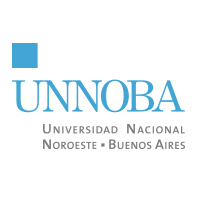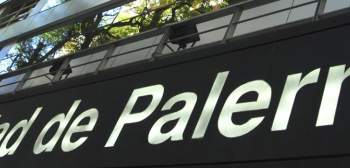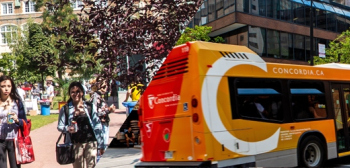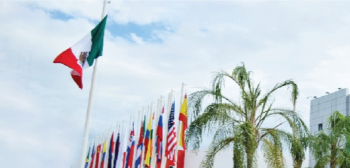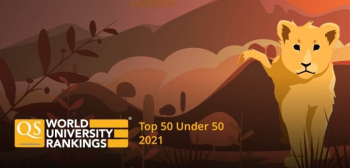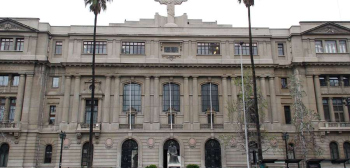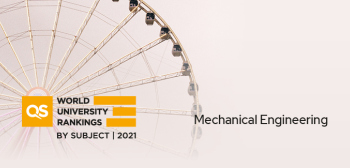- PublicStatus
- MediumResearch Output
- 8,193Total Students
- 348Faculty
- 124Int'l Students
Whether the University is funded by the government of that country or state, or funded by private donations.
The research intensity of the University, based on the number of papers output relative to the University’s size.
The number of full time equivalent students enrolled at the University.
The number of full time equivalent teaching staff employed by the University.
The number of full time equivalent international students enrolled at the University.
UNNOBA
About
UNNOBA comprises three Schools and two Institutes. The Schools are the academic units where the different programs are taught. They are in charge of organizing, designing and constantly updating the courses of studies. They are governed by a Director and a Steering Council.
SCHOOL OF TECHNOLOGY
In the Engineering area, there are programs related to project development, construction and management of industrial plants and factories and which enable graduates to plan, implement, lead, operate, build, set up and assess thermal and fluid mechanical systems.
The Design area offers academic programs to enable students to project, design, execute and lead graphic, industrial, and clothing and textile design projects.
The IT area offers academic programs in design, implementation and control of IT and software systems.
SCHOOL OF AGRICULTURAL, NATURAL AND ENVIRONMENTAL SCIENCES
The Food Science area offers academic programs in food design and development and quality control.
The Agriculture area offers academic programs aimed at providing students with solid knowledge of production, transformation,
storage and selling of agricultural products and who can creatively respond to regional challenges.
The Genetics area offers academic programs providing graduates with the appropriate skills to develop genetically-modified products
and to conduct research to improve agricultural production. T
SCHOOL OF ECONOMICS AND LAW
In the area of Management, the School offers programs related to public and private organizations at any strategic, tactic and operating level, in areas such as management, finance, human resources, marketing and production, among others.
In the Tax and Accounting areas, this School offers courses focused on developing the necessary knowledge and skills to provide advisory services, plan, coordinate, execute and control activities related to economic, equity, financial and tax matters, as well as for corporate, social security, labor and tax
decision-making at any kind of public or private organizations and independent entities.
As regards the legal area, the School offers solid knowledge to prepare students for conflict resolution, in accordance with the Law and the principles of Justice, in a framework of social and ethical responsibility. Our graduates are capable of applying methods of interpretation of the Law, designing action strategies and anticipating results with a critical and practical view of the Law. T
INSTITUTE OF HUMAN DEVELOPMENT
In the health area, our nursing students are trained to be capable of diagnosing, planning, performing, addressing and assessing nursing care for
patients, families and the community at different prevention and care levels, up to the highest level of complexity. They are capable of managing hospital and/or community nursing services. They can also formulate and implement human resources training and continuous education programs in the nursing field and research projects.
Departments are organized around specific disciplines or areas of knowledge. There are five departments:
- Department of Economics, Law and Social Sciences
- Department of Supplementary Subjects
- Department of Technology
- Departments of Basic and Experimental Sciences
- Department of Humanities
This organizational system allows for the movement of the teaching force across the university and it makes the academic structure more flexible.
About
UNNOBA comprises three Schools and two Institutes. The Schools are the academic units where the different programs are taught. They are in charge of organizing, designing and constantly updating the courses of studies. They are governed by a Director and a Steering Council.
SCHOOL OF TECHNOLOGY
In the Engineering area, there are programs related to project development, construction and management of industrial plants and factories and which enable graduates to plan, implement, lead, operate, build, set up and assess thermal and fluid mechanical systems.
The Design area offers academic programs to enable students to project, design, execute and lead graphic, industrial, and clothing and textile design projects.
The IT area offers academic programs in design, implementation and control of IT and software systems.
SCHOOL OF AGRICULTURAL, NATURAL AND ENVIRONMENTAL SCIENCES
The Food Science area offers academic programs in food design and development and quality control.
The Agriculture area offers academic programs aimed at providing students with solid knowledge of production, transformation,
storage and selling of agricultural products and who can creatively respond to regional challenges.
The Genetics area offers academic programs providing graduates with the appropriate skills to develop genetically-modified products
and to conduct research to improve agricultural production. T
SCHOOL OF ECONOMICS AND LAW
In the area of Management, the School offers programs related to public and private organizations at any strategic, tactic and operating level, in areas such as management, finance, human resources, marketing and production, among others.
In the Tax and Accounting areas, this School offers courses focused on developing the necessary knowledge and skills to provide advisory services, plan, coordinate, execute and control activities related to economic, equity, financial and tax matters, as well as for corporate, social security, labor and tax
decision-making at any kind of public or private organizations and independent entities.
As regards the legal area, the School offers solid knowledge to prepare students for conflict resolution, in accordance with the Law and the principles of Justice, in a framework of social and ethical responsibility. Our graduates are capable of applying methods of interpretation of the Law, designing action strategies and anticipating results with a critical and practical view of the Law. T
INSTITUTE OF HUMAN DEVELOPMENT
In the health area, our nursing students are trained to be capable of diagnosing, planning, performing, addressing and assessing nursing care for
patients, families and the community at different prevention and care levels, up to the highest level of complexity. They are capable of managing hospital and/or community nursing services. They can also formulate and implement human resources training and continuous education programs in the nursing field and research projects.
Departments are organized around specific disciplines or areas of knowledge. There are five departments:
- Department of Economics, Law and Social Sciences
- Department of Supplementary Subjects
- Department of Technology
- Departments of Basic and Experimental Sciences
- Department of Humanities
This organizational system allows for the movement of the teaching force across the university and it makes the academic structure more flexible.
University highlights
- 2024#351-400
- 2025#301-350
Campus locations
Junín,
Libertad 555 , Junin , Argentina , Argentina , 6000
Ciudad Autónomas de Buenos Aires,
Callao 289 , Ciudad Autónoma de Buenos Aires , Ciudad Autónoma de Buenos Aires , Argentina , 1022
Pergamino,
Monteagudo 2772 , Pergamino , Buenos Aires , Argentina , 2700
Similar Universities
Pontificia Universidad Católica Argentina
Av. Alicia Moreau de Justo 1600, Buenos Aires
=344 QS World University RankingsEIT Digital Master School
22 Rue d'Arlon, Brussels
John Cabot University
Via della Lungara 233, Rome
Universidad Autónoma de Sinaloa (UAS)
Cd Universitaria, Culiacán
Test preparations
Featured University


-
10 UG & 47 PGTotal courses
-
PrivateStatus
-
HighResearch output
